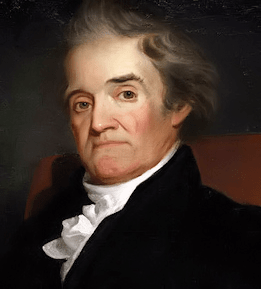Textus Receptus Bibles
Noah Webster's Bible 1833
| 2:1 | And it came to pass in the month Nisan, in the twentieth year of Artaxerxes the king, that wine was before him: and I took up the wine, and gave it to the king. Now I had not before been sad in his presence. |
| 2:2 | Wherefore the king said to me, Why is thy countenance sad, seeing thou art not sick? this is nothing but sorrow of heart. Then I was very greatly afraid, |
| 2:3 | And said to the king, Let the king live for ever: why should not my countenance be sad, when the city, the place of my fathers' sepulchers, lieth waste, and its gates are consumed with fire? |
| 2:4 | Then the king said to me, For what dost thou make request? So I prayed to the God of heaven. |
| 2:5 | And I said to the king, If it should please the king, and if thy servant hath found favor in thy sight, that thou wouldst send me to Judah, to the city of my fathers' sepulchers, that I may build it. |
| 2:6 | And the king said to me, (the queen also sitting by him,) For how long shall thy journey be? and when wilt thou return? So it pleased the king to send me; and I set him a time. |
| 2:7 | Moreover, I said to the king, If it should please the king, let letters be given me to the governors beyond the river, that they may convey me over till I come into Judah: |
| 2:8 | And a letter to Asaph the keeper of the king's forest, that he may give me timber to make beams for the gates of the palace which appertained to the house, and for the wall of the city, and for the house that I shall enter. And the king granted me, according to the good hand of my God upon me. |
| 2:9 | Then I came to the governors beyond the river, and gave them the king's letters. Now the king had sent captains of the army and horsemen with me. |
| 2:10 | When Sanballat the Horonite, and Tobiah the servant, the Ammonite, heard of it, it grieved them exceedingly that there had come a man to seek the welfare of the children of Israel. |
| 2:11 | So I came to Jerusalem, and was there three days. |
| 2:12 | And I arose in the night, I and some few men with me; neither told I any man what my God had put in my heart to do at Jerusalem: neither was there any beast with me, save the beast that I rode upon. |
| 2:13 | And I went out by night by the gate of the valley, even before the dragon-well, and to the dung-port, and viewed the walls of Jerusalem, which were broken down, and their gates were consumed with fire. |
| 2:14 | Then I went on to the gate of the fountain, and to the king's pool: but there was no place for the beast that was under me to pass. |
| 2:15 | Then I went up in the night by the brook, and viewed the wall, and turned back, and entered by the gate of the valley, and so returned. |
| 2:16 | And the rulers knew not whither I went, or what I did; neither had I as yet told it to the Jews, nor to the priests, nor to the nobles, nor to the rulers, nor to the rest that did the work. |
| 2:17 | Then said I to them, Ye see the distress that we are in, how Jerusalem lieth waste, and its gates are burned with fire: come, and let us build up the wall of Jerusalem, that we may be no more a reproach. |
| 2:18 | Then I told them of the hand of my God which was good upon me; as also the king's words that he had spoken to me. And they said, Let us rise and build. So they strengthened their hands for this good work. |
| 2:19 | But when Sanballat the Horonite, and Tobiah the servant, the Ammonite, and Geshem the Arabian, heard it, they laughed us to scorn, and despised us, and said, What is this thing that ye do? will ye rebel against the king? |
| 2:20 | Then I answered them, and said to them, The God of heaven, he will prosper us; therefore we his servants will arise and build: but ye have no portion, nor right, nor memorial, in Jerusalem. |

Noah Webster's Bible 1833
While Noah Webster, just a few years after producing his famous Dictionary of the English Language, produced his own modern translation of the English Bible in 1833; the public remained too loyal to the King James Version for Webster’s version to have much impact.